detail profile s c3 a9rgio ricardo
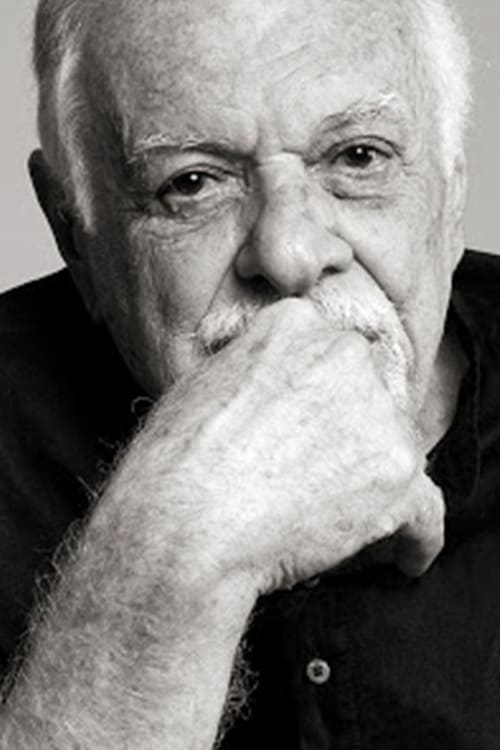
Riwayat Hidup
João Lutfi (18 June 1932 – 23 July 2020), known professionally as Sérgio Ricardo, was a Brazilian actor, musician, playwright and filmmaker, better known for being responsible for the soundtrack of Glauber Rocha's "Deus e o Diabo na Terra do Sol" ("Black God, White Devil").
Born in a Lebanese-Brazilian family in Marília, São Paulo, and brother to famed director of photography Dib Lutfi, João got his stage name from TV businessmen who wanted to rebrand him as a leading man with an iconic name during his early gigs as an actor.
He's maily associated with the Cinema Novo (Brazilian New Wave) movement, but stayed active until 2018.
During the Cinema Novo days, Ricardo directed short film "Menino da Calça Branca" (1961) and "Esse Mundo É Meu" (1963), his feature-length debut.
Among other notorious works in his career as a filmmaker is "A Noite do Espantalho", which shows Ricardo's talent as a polymath by mixing filmmaking with folk music and other elements of Brazilian popular culture, such as "cordel" literature.
Ricardo moved to the Vidigal slum, in Rio de Janeiro, by choice in the 1970s, where he lived until his death in 2020.
"Bandeira de Retalhos" (2018), his last film, was adapted by a theatre play also written by him and chronicles the life in 1970s Vidigal.
Info Pribadi
Peran Yang Di Mainkan Sérgio Ricardo
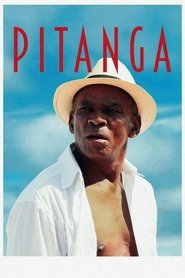 This documentary investigates the aesthetic political...
This documentary investigates the aesthetic political...Pitanga 2016
This documentary investigates the aesthetic, political and existential trajectory of emblematic Black Brazilian actor Antônio Pitanga. His career spans over five decades, and he has worked with iconic Brazilian filmmakers Glauber Rocha, Cacá Diegues and Walter Lima Jr. He was a prominent figurehead and outspoken activist during the Brazilian dictatorship, a period of unrest in Brazilian cinema. "Pitanga" deep dives into the world of Antônio and the history of Brazil. The documentary was directed by his daughter Camila Pitanga, one of widely recognised faces in Brazilian television and cinema right now. The film is also a poem, and a tender ode to fatherhood.
 Edgar is a young uppermiddle class...
Edgar is a young uppermiddle class...Two Rabbits 2012
Edgar is a young upper-middle class man, close to completing 30 years old, he lives a full life crisis and is in a position common to the vast majority of Brazilians. On the one hand the power, represented by a corrupt state, abusive and absent in their taxes before their obligations. On the other, crime increasingly organized violence became a constant in the lives of citizens in large cities. Edgar responds to all this as a modern vigilante. With the help of ingredients such as technology, counter-information and manipulation, Edgar concocts a brilliant plan, using the greed of their opponents as the reason for its destruction. As the plot unfolds, we know more about the dark past of each character as Edgar fit the pieces together in an intriguing puzzle that makes up the film's plot.
 In the 1970s festivals were incredibly...
In the 1970s festivals were incredibly...A Night in 67 2010
In the 1970s, "festivals" were incredibly popular in Brazil, as they were recorded before a live studio audience, and usually featured a number of elimination rounds. They also formed the springboard for the career of many a big-name stars, such as Chico Buarque, Caetano Veloso, Roberto Carlos and Gilberto Gil. Appearing on such a program was no cakewalk, however: audiences could be as wild in their condemnation as in their appreciation of an artist. Extensive archive footage (including performances and behind-the-scenes interviews) from the turbulent final evening of the Festival of Brazilian Popular Music 1967 paints a fascinating picture, not only of the transformation of Brazilian music into real "festival" music, but also of a society starting to buck against the yoke of military rule.
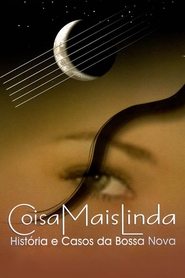 Documentary about the birth of bossanova...
Documentary about the birth of bossanova...Coisa Mais Linda - Histórias e Casos da Bossa Nova 2005
Documentary about the birth of bossa-nova, in Brazil, and the major stars of this musical style.
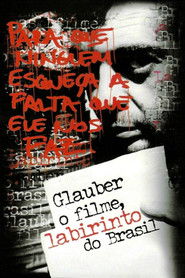 Documentary about Brazilian filmmaker Glauber Rocha...
Documentary about Brazilian filmmaker Glauber Rocha...Glauber Rocha - The Movie, Brazil's Labyrinth 2003
Documentary about Brazilian filmmaker Glauber Rocha, one of the most important names in the Cinema Novo, with interviews with some of his friends and colleagues.
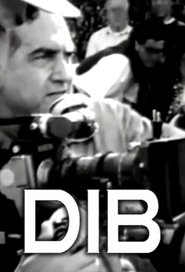 Documentary that addresses through the testimony...
Documentary that addresses through the testimony...Dib 1997
Documentary that addresses, through the testimony of directors and actors, the work of Dib Lutfi, considered one of the greatest photographers of Brazilian cinema.
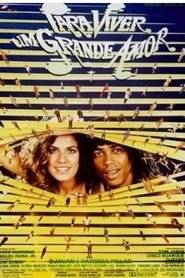 Poor people who live in the...
Poor people who live in the...Para Viver Um Grande Amor 1984
Poor people who live in the slums in Rio de Janeiro decide to occupy an empty apartment building in the rich part of the city. Meanwhile, a rich girl falls in love with a poor composer. Based on the musical play "Pobre Menina Rica", by Vinícius de Moraes and Carlos Lyra.
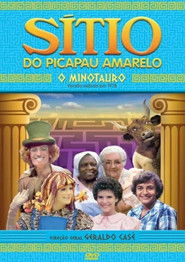 At Pedrinhos request Dona Benta begins...
At Pedrinhos request Dona Benta begins...Sítio do Picapau Amarelo: O Minotauro 1978
At Pedrinho's request, Dona Benta begins to tell the legend of the Minotaur. In the middle of the story, a strange visitor appears on the farm and takes Aunt Natácia to some unknown place. Upon discovering that she was kidnapped by the Minotaur, the whole gang goes on an adventure to try to save Aunt Nastácia. And that's when the fun begins.
 A wealthy French promoter living in...
A wealthy French promoter living in...Un animal doué de déraison 1976
A wealthy French promoter living in Rio tries to seduce Alexandra, a young woman of high society, but a prisoner of her strict education. He then shared his project with a journalist friend, who decided to make it the theme of a novel he imagined in 18th century Brazil...
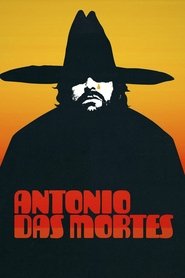 A new incarnation of Cangaceiro bandits...
A new incarnation of Cangaceiro bandits...Antonio das Mortes 1969
A new incarnation of Cangaceiro bandits, led by Coirana, has risen in the badlands. A blind landowner hires Antônio to wipe out his old nemesis. Yet after besting Coirana and accompanying the dying man to his mountain hideout, Antônio is moved by the plight of the Cangaceiro’s followers. The troubled hitman turns revolutionary, his gun and machete aimed towards his former masters.
 Eldorado a fictitious country in America...
Eldorado a fictitious country in America...Entranced Earth 1967
Eldorado, a fictitious country in America, is sparkling with the internal struggle for political power. In the eye of this social convulsion, the jaded journalist Paulo Martins opposes two equally corrupt political candidates: a pseudopopulist and a conservative. In this context, Paulo is torn between the madness of the elite and the blind submission of the masses. But, in this complex tropical reality, nothing really is what it seems to be.
 Wanted for killing his boss Manuel...
Wanted for killing his boss Manuel...Black God, White Devil 1964
Wanted for killing his boss, Manuel flees with his wife Rosa to the sertão, the barren landscape of Northern Brazil. Thrust into a primordial violent region, Manuel and Rosa come under the influence and control of a series of frightening figures.
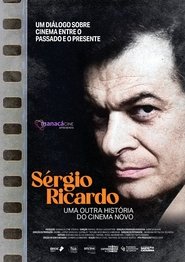
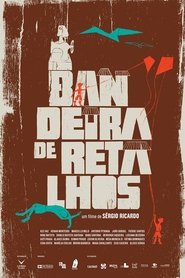 Vidigal Hill 1977 A runaway group of...
Vidigal Hill 1977 A runaway group of...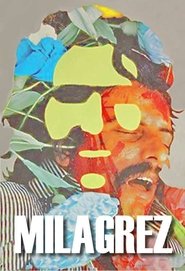 Documentary on Antonio das Mortes Glauber...
Documentary on Antonio das Mortes Glauber...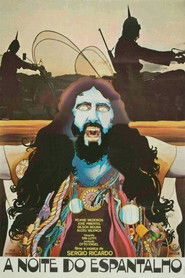 In the miserable Northeastern Brazil a...
In the miserable Northeastern Brazil a...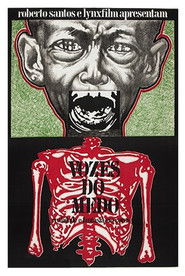
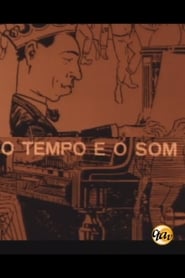
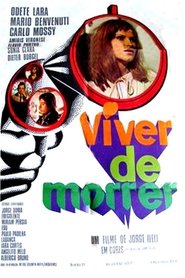 A Brazilian crime film
A Brazilian crime film